Bangladesh, Pakistan, Indonesia and India will vote – in that order – for a collage of mostly elderly incumbents, would-be autocrats, dynasts and veteran political schemers.
All of them, in different ways, have used the courts to “adjust things” in their favour, relegating lofty democratic ideals, ‘change’ narratives and concerns for greater civil liberties behind outmanoeuvring opponents and silencing critics.
Ballot power: 2024 elections could steer global relations for years to come
Ballot power: 2024 elections could steer global relations for years to come
The promises they have made pivot on the safe stewardship of vastly unequal economies, or tap deep nationalist emotions and identity politics.
As a result, 2024 is on track to be another milestone year for the rise of illiberal democracy, according to rights advocates.
The march of dictatorships is deepening across the region
“So-called democracy in Asia without rights is all about deepening ruling elites’ impunity to do whatever they want,” said Phil Robertson, deputy director of Human Rights Watch’s Asia division. “With democratic challenges to power being eliminated by hook or by crook … the march of dictatorships is deepening across the region.”
Beijing regards the self-ruled island as a breakaway province to be brought under mainland control – by force, if necessary. Many countries, including the US, do not officially recognise Taiwan as an independent state but oppose the use of force to change the status quo.
Beijing urges Taiwan to ‘stand on right side of history’ ahead of elections
Beijing urges Taiwan to ‘stand on right side of history’ ahead of elections
When the spoils of democracy in 2024 are divided up, most likely among elderly leaders representing the political establishment, many may be left questioning who Asia went to the polls for.
Modi’s potent spell
Over tiny cups of steaming masala chai, a group of flower sellers in south Delhi said Modi’s enduring gift was making Indians believe in the future after decades in the doldrums.
“My village in Bihar used to get electricity from 8am to 6pm. Now it’s 24/7,” said Sushil Kumar, perched on a motorbike, of his birthplace in India’s poorest state. “To make a cup of tea, women had to collect firewood first and then choked on the smoke. Now they make tea in a jiffy with cooking gas. No politician ever gave us these things before.”
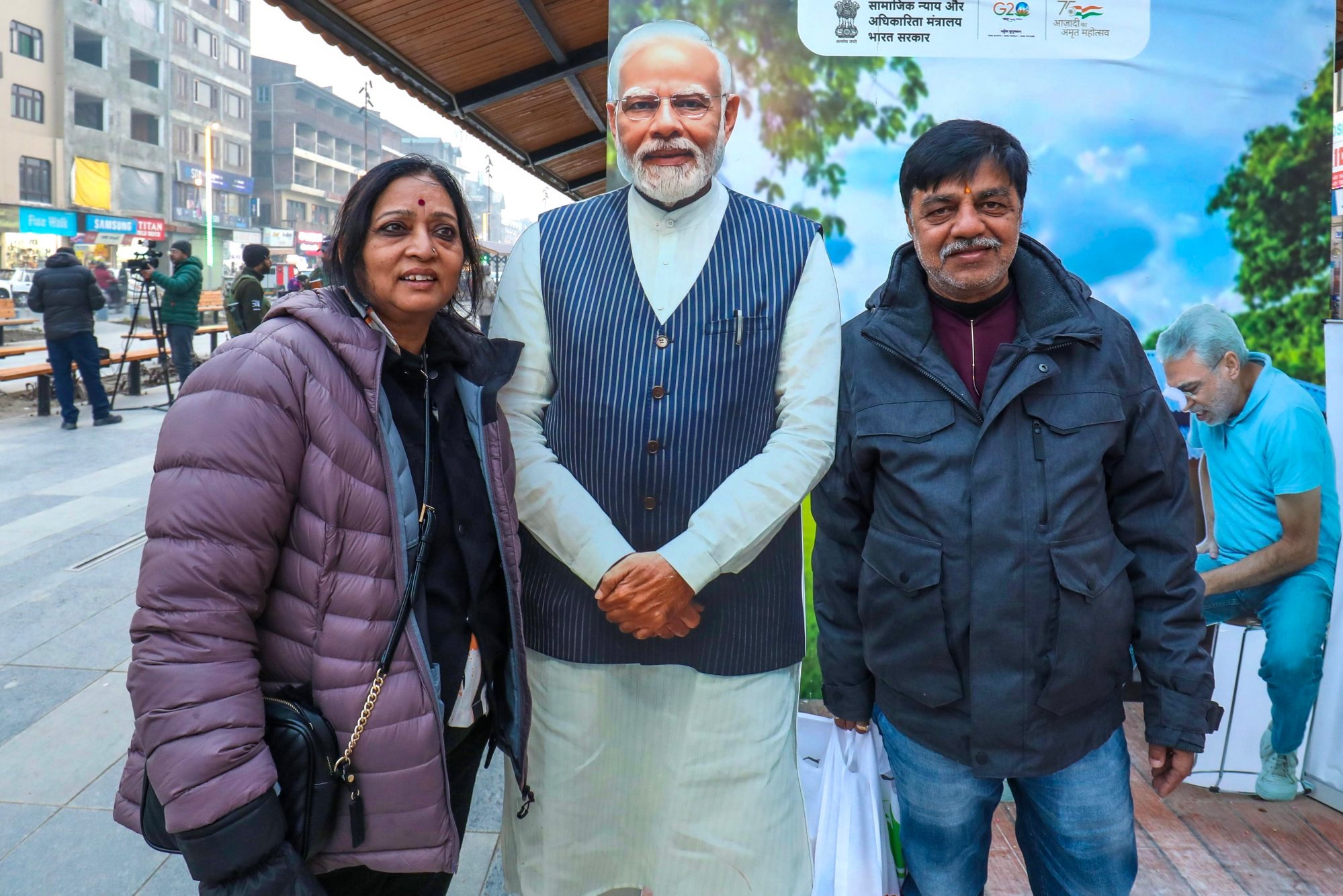
Citing the new roads reaching remote villages, food and cash handouts, homes built with government money, improved electricity connectivity and piped water – at long last – into their rural homes, the friends were adamant that Modi still commands the loyalty of India.
“Who else is as capable as he is? As untiring as he is?” asked Jasvinder Solanki, a loan recovery agent and friend of Kumar.
Modi’s government has also wielded sedition and sweeping security laws at dissenters, rival politicians and any critical media, imposing more than 700 internet shutdowns – the most on Earth – since coming to power in 2014, as political attacks on the prime minister become increasingly hard to unpick from attacks on the nation.
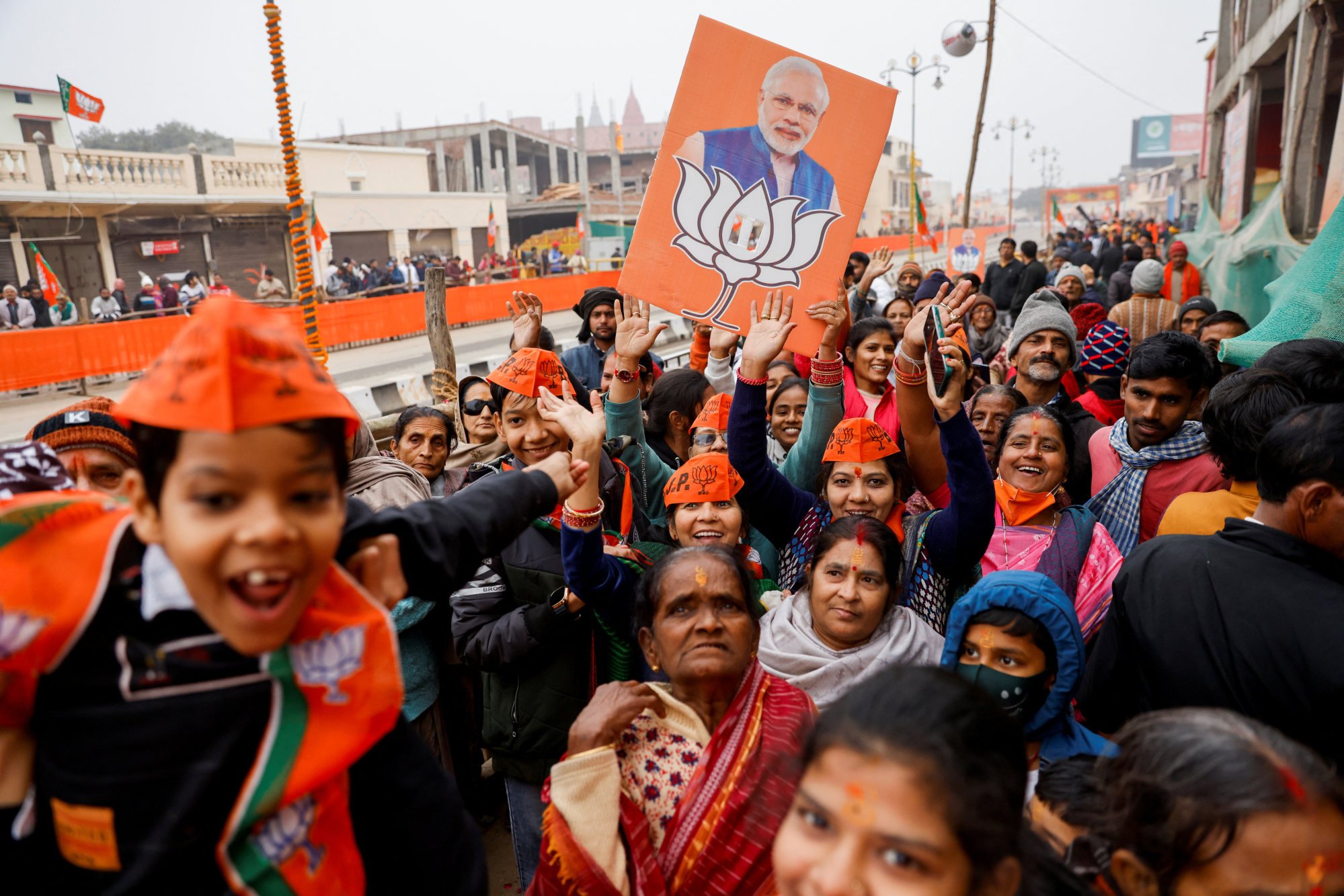
The temple is a key issue of faith in the ‘Hindi belt’ states of northern India: Bihar, Uttar Pradesh, Madhya Pradesh, Rajasthan and Haryana, home to around 450 million people.
“There is no doubt that the BJP will flaunt the temple as one of its major achievements in the election,” said political analyst Parsa Venkateshwar Rao Jnr.
In India, Modi’s party stirs up Hindu nationalism with temple at disputed site
In India, Modi’s party stirs up Hindu nationalism with temple at disputed site
This year’s election in April and May will not bring a clean sweep for the BJP, as southern India and Punjab are yet to fall under Modi’s spell. But the main rival Congress party’s opposition has been anaemic, with it failing to unite the nation around a binding message or capitalise on the assault on long-held freedoms.
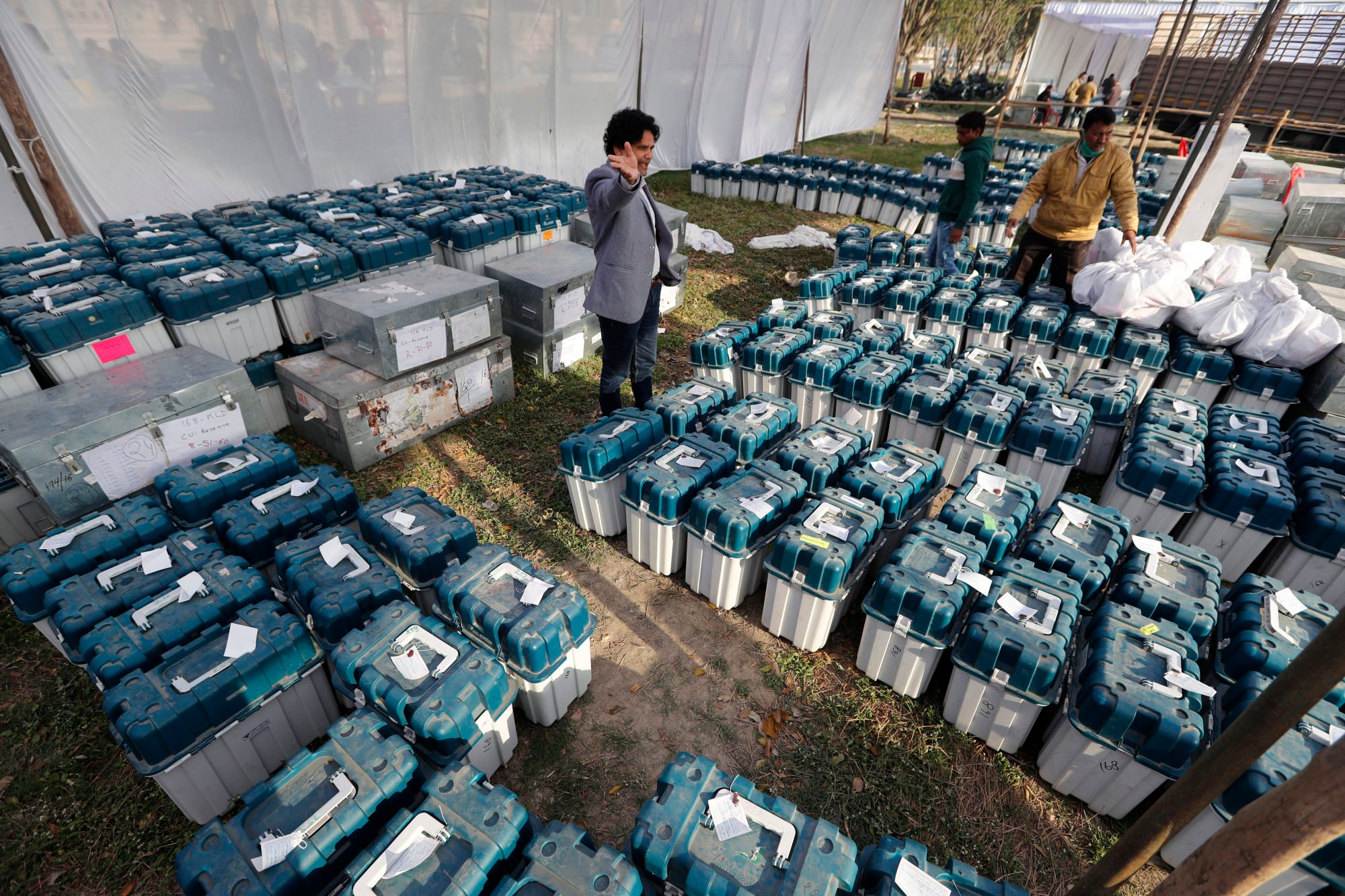
Poll officials will trek on foot to reach remote deserts, the deepest forests, highest mountain peaks and most isolated islands to ensure every ballot is taken.
And, as at each election, a polling booth has to be set up in Gir Forest National Park in Gujarat for one lone Hindu priest who lives among the lions to cast his vote.
“Every election is a festival of colour, drama and noise as voters exercise their franchise,” said political analyst Neerja Chowdhury. “For all the fault lines that exist, elections are the heartbeat of India’s democracy.”
Tilting the playing field
The ex-cricketer and former prime minister remains the darling of swathes of the aspirational urban middle class – as well as young voters – despite hitting 71 last year.
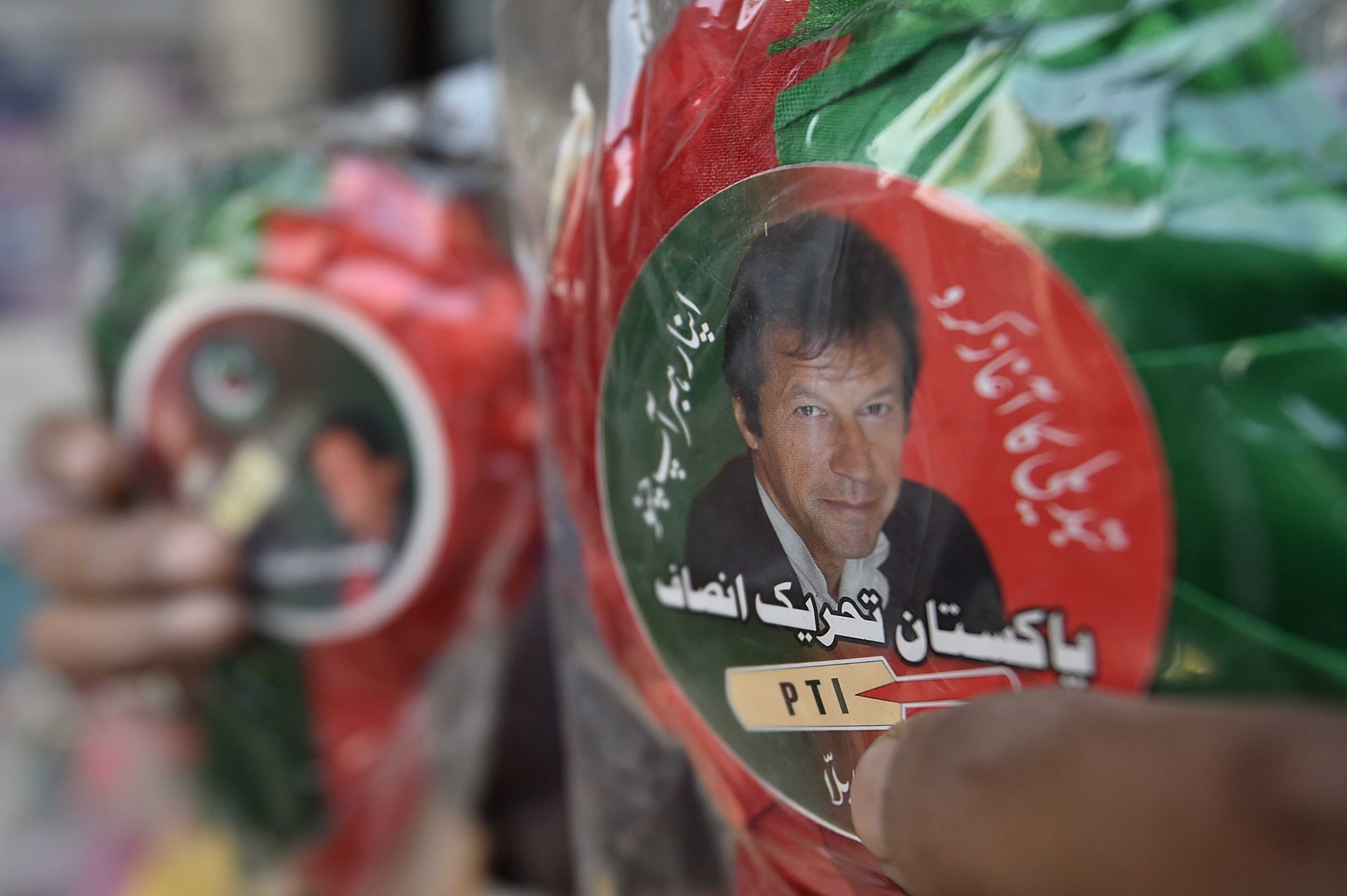
The Election Commission of Pakistan “seems to be effectively remote-controlled by the uniformed rulers”, said Afrasiab Khattak, a Pashtun nationalist politician and former senator from northwest Khyber-Pakhtunkhwa province, a PTI stronghold.
Sharif, a businessman and veteran survivor of Pakistan’s bear-pit politics, was himself removed from office in 2017, jailed and prevented by the military and judiciary from contesting the 2018 general election so as to ensure the PTI’s victory.
As Pakistan hurtle from crisis to crisis, military intervention rears its ugly head
As Pakistan hurtle from crisis to crisis, military intervention rears its ugly head
The breaking point came when the ex-cricketer attempted to prevent the replacement of a former chief of Inter-Services Intelligence, the Pakistan military’s feared spy agency, who was seen as pro-PTI.
Despite the PML-N’s prospects of emerging as the largest party in the February 8 polls, it has grown increasingly concerned about the fragile state of the nation it will be left to govern if elected.
Pakistan is experiencing “acute political polarisation, exacerbated by a particularly nasty confrontation between the opposition and the military and its supporters, along with a severe economic crisis and a resurgence in terrorism”, said Michael Kugelman, director of the South Asia Institute at the Wilson Centre, a Washington think tank.
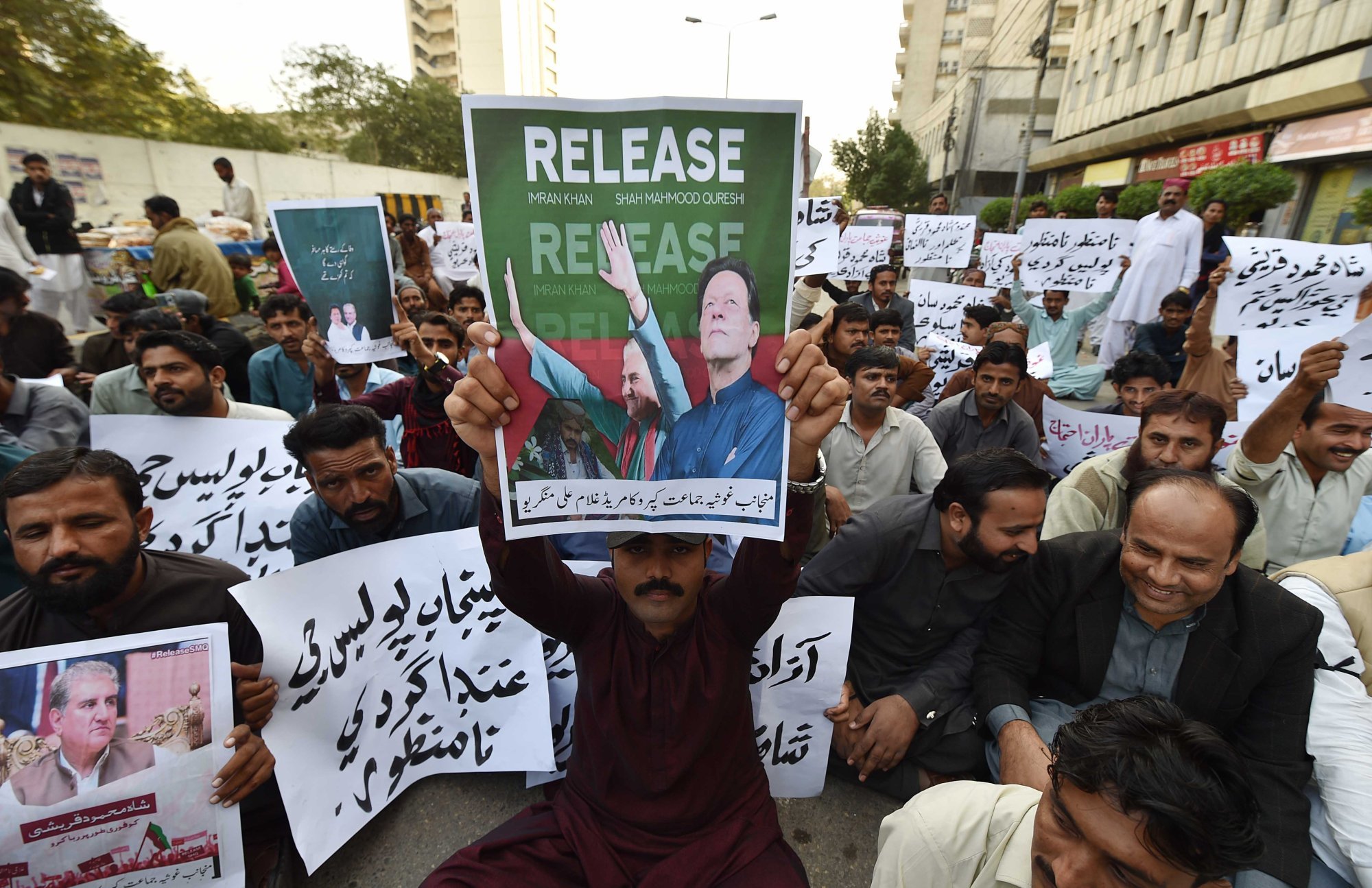
“There are also deep levels of disillusionment coursing through society, and mistrust towards political leaders and institutions is soaring,” he told This Week In Asia.
Another pressing issue is the question of who younger voters will get behind in Khan’s absence – an unknown that experts say could stump the polls’ back-room planners.
More than 45 per cent of Pakistan’s 127 million eligible voters are younger than 35 and Khan remains hugely popular with the cohort, who could yet prevent a PML-N victory in its old stamping ground of populous eastern Punjab province, which contains more than half of the National Assembly’s constituencies.
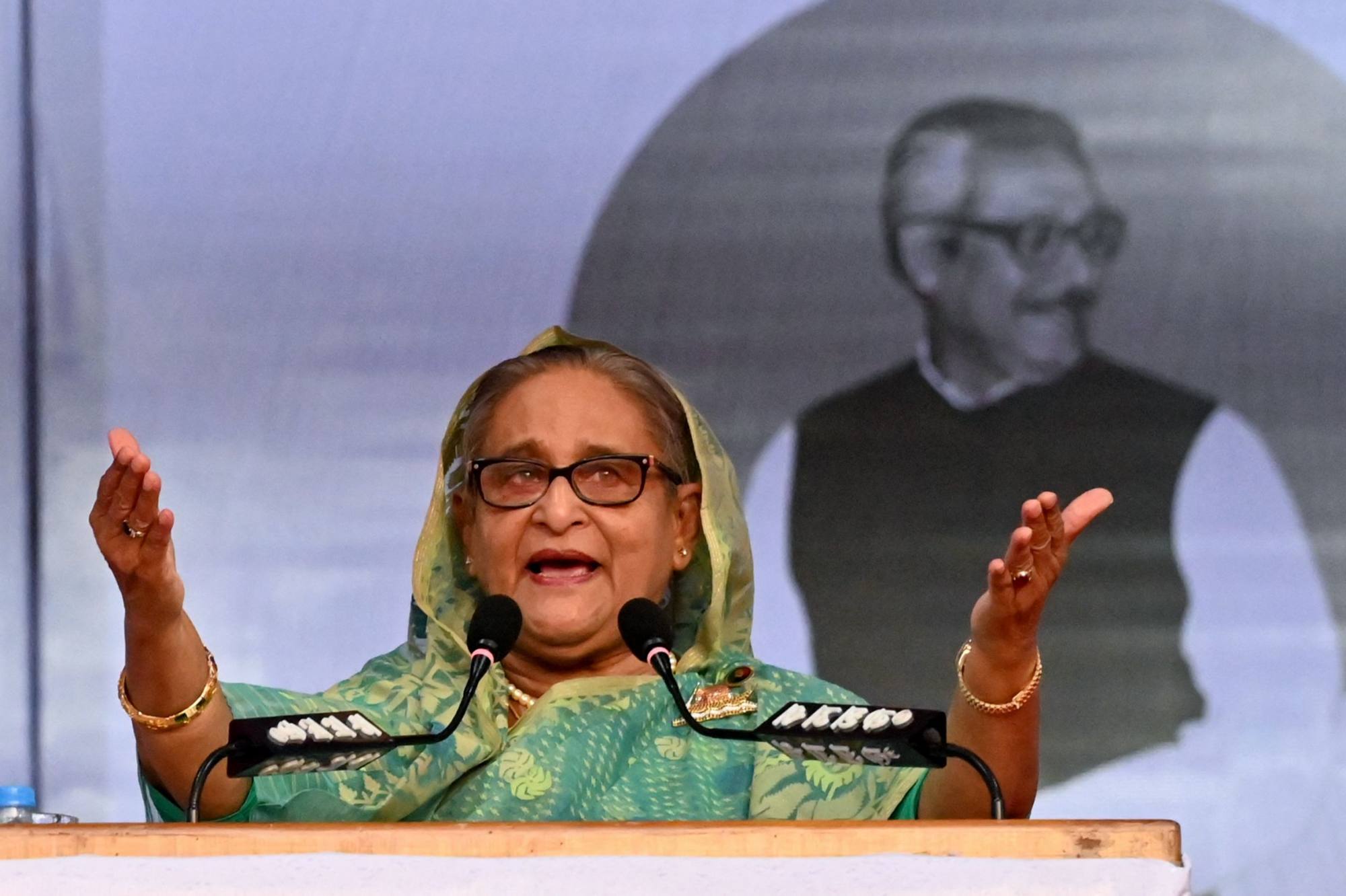
The road to autocracy?
The nation’s roughly 170 million people – almost one-third of them aged 18 to 30 – bemoan the country’s carousel of instability and repression, with Sunday’s poll likely to bring more of the same in the absence of a real choice.
Bangladesh arrests more opposition leaders as PM rejects dialogue
Bangladesh arrests more opposition leaders as PM rejects dialogue
“Bangladesh is approaching another sham election,” exiled opposition leader Tarique Rahman told Agence France-Presse on Thursday. “Participating in an election under Hasina, against the aspirations of the Bangladeshi people, would undermine the sacrifices of those who fought, shed blood and gave their lives for democracy.”
His mother Khaleda Zia, a two-time prime minister from the country’s rival political dynasty, is under effective house arrest for what the opposition says are manufactured corruption charges. The army has been deployed across the nation in advance of Sunday’s election, in an illustration of the febrile political moment. Experts say a low turnout could result in more political chaos over the coming months as an unpopular government faces a restive and poor population vulnerable to economic shocks.
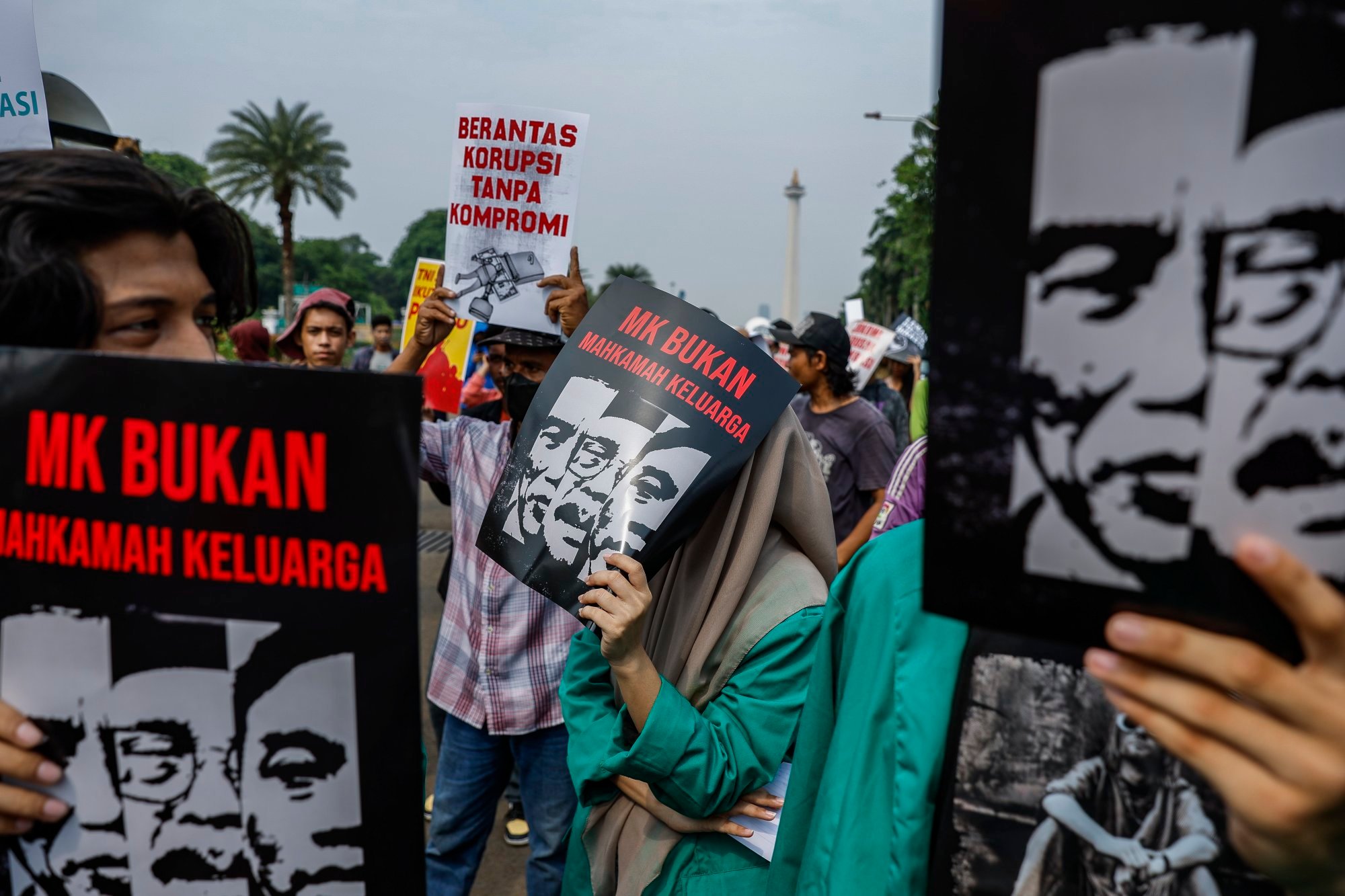
A new dynasty rises
After nearly a decade in power, Indonesia’s Widodo is in his final months as president. Elections from February 14 will start the process of finding a replacement for the country’s immensely popular leader, who was once seen as a clean broom in a world of political insiders.
But Jokowi, the pro-poor everyman who spun his backstory as a furniture salesman into a poll-winning brand as an incorruptible, anti-establishment figurehead, appears determined not to fade away.
Instead, critics say he is attempting to carve out a new political dynasty to keep a foothold in the world’s fourth most populous nation and Southeast Asia’s largest economy.
Things seem to have regressed … we have the established democratic institution, we have the constitutional court, but these are being used in different ways by political actors
There is a growing perception that Widodo is engaging in the sort of dynastic politics that is all too familiar to citizens of Southeast Asia’s various semi-autocratic nations, says former student leader Amalinda.
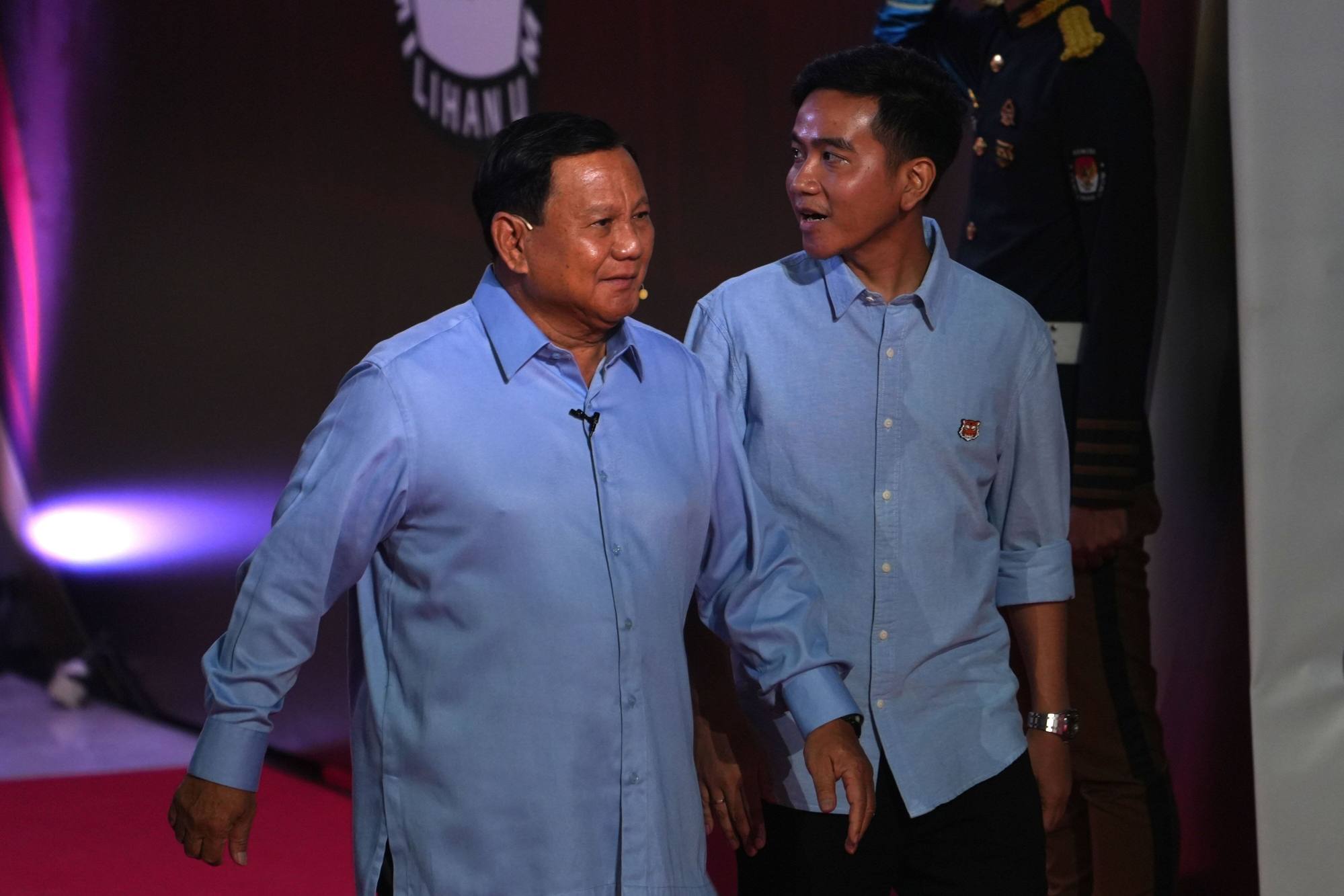
If Prabowo, the current defence minister, and Gibran triumph then “Indonesians will learn that those in power can do anything they want to keep that power,” said Amalinda, who is an associate professor at Gadjah Mada University’s department of politics and government in Indonesia.
“Things seem to have regressed … we have the established democratic institution, we have the constitutional court, but these are being used in different ways by political actors.”
Around 205 million of Indonesia’s more than 270 million people are eligible to vote this year, according to the election commission. Their youth – about one-third of voters are under 30 – has made social media a prime campaigning platform for all three candidates.
Prabowo still ‘ideal’ choice for most Indonesian voters despite Gibran’s gaffes
Prabowo still ‘ideal’ choice for most Indonesian voters despite Gibran’s gaffes
The latest polls show Prabowo and Gibran cementing their lead over Ganjar Pranowo and Anies Baswedan, with between 43 and 50 per cent of the vote forecast to go their way.
If no set of candidates receives more than the 50 per cent needed for an outright win, Indonesia’s election process will be extended by four months, with a second vote set for June 26.

